20 Travel Mistakes To Avoid Abroad + 5 Smart Tips Seasoned Travelers Swear By
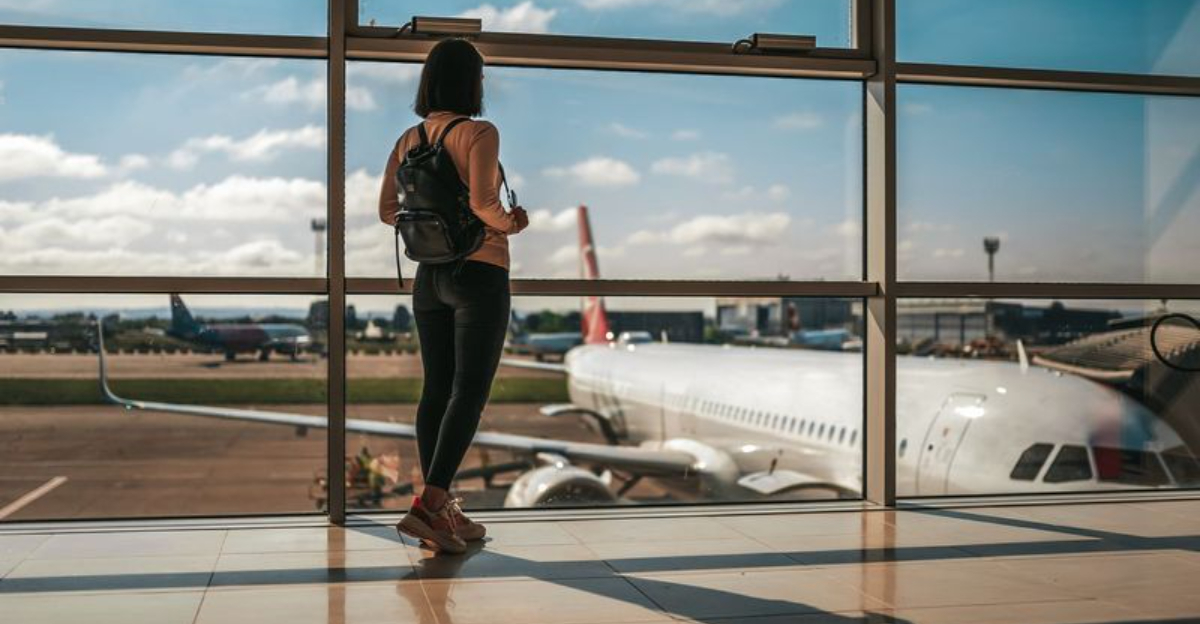
Traveling abroad comes with its fair share of excitement—and challenges. From cultural missteps to logistical slip-ups, even seasoned travelers aren’t immune to making errors that can throw a wrench into an otherwise great trip.
But with a bit of awareness and a few smart habits, it’s possible to sidestep the most common issues and enjoy smoother, more meaningful experiences. This guide covers the travel habits worth breaking—and the savvy tips that can make all the difference.
1. Overpacking And Not Planning For Versatility

Suitcases bursting at the seams create unnecessary headaches. Instead of fifteen single-purpose outfits, pack versatile pieces that mix and match easily.
A few quality items that layer well can create dozens of combinations. Think neutral colors with a few statement accessories that don’t take up much space.
2. Ignoring Local Customs And Etiquette

Cultural faux pas can range from mildly embarrassing to deeply offensive. Something as simple as using your left hand or showing the soles of your feet might upset locals in certain regions.
Take time before departure to learn basic etiquette about dining, greetings, appropriate clothing, and gestures. Many customs are easy to respect once you’re aware of them.
3. Not Checking Visa Or Entry Requirements

Automatic entry isn’t guaranteed anywhere! Arriving at borders without proper documentation leads to stress, delays, or even denied entry.
Requirements vary widely between countries and can change suddenly. Some nations demand proof of onward travel, specific vaccinations, or minimum passport validity periods. Make a checklist at least a month before departure and verify requirements through official embassy websites rather than travel blogs.
4. Exchanging Money At The Airport
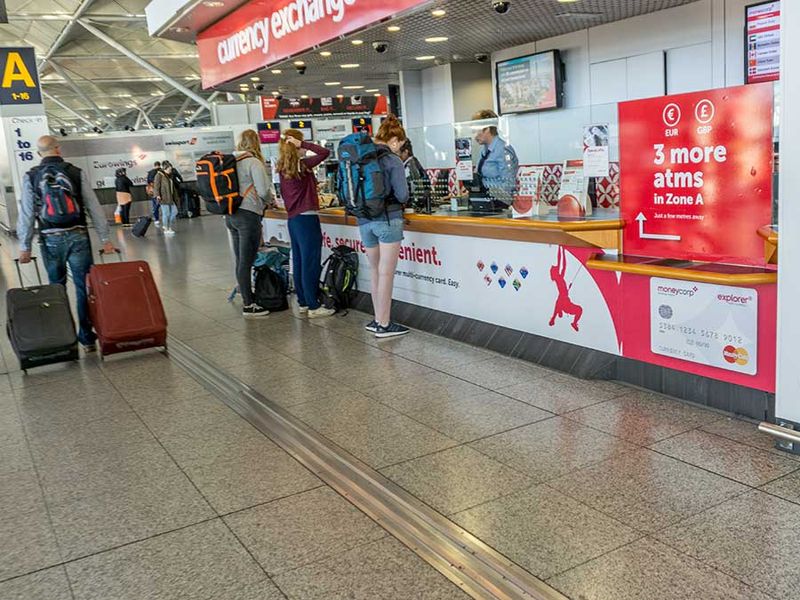
Those convenient currency exchange booths? They’re counting on your desperation and lack of options. Their rates typically include hefty markups and fees that silently eat away at your travel budget.
Better alternatives exist! Local ATMs usually offer competitive rates, especially with travel-friendly bank accounts. For truly savvy travelers, ordering some currency before your trip or using no-foreign-transaction-fee cards provides the best value.
5. Failing To Notify Your Bank Before Traveling

Picture this: your first dinner abroad, and your card gets declined because your bank flagged it as suspicious activity. Not the vacation start you imagined!
Banks monitor unusual patterns to protect against fraud. Sudden international charges often trigger automatic freezes on accounts. Set travel notices through your banking app before departure and always carry backup payment methods like a second card or some emergency cash.
6. Skipping Travel Insurance

Many travelers view insurance as an unnecessary expense—until something goes wrong. Medical emergencies abroad can cost thousands or even hundreds of thousands of dollars without proper coverage.
Beyond health concerns, quality insurance protects against trip cancellations, lost luggage, and stolen belongings. Even short weekend getaways aren’t immune to disruptions. Compare policies carefully; the cheapest option might exclude critical coverage you’ll regret not having.
7. Relying Too Heavily On Wi-Fi Or Not Getting A Local SIM

Free hotel Wi-Fi sounds great until you’re lost in an unfamiliar neighborhood with no connection. Connectivity issues can transform minor inconveniences into major problems when traveling.
Local SIM cards offer affordable data that works reliably throughout your destination country. They’re typically inexpensive and easy to purchase at airports or convenience stores. For multi-country trips, consider portable hotspots or international plans from your home carrier.
8. Keeping All Valuables In One Place
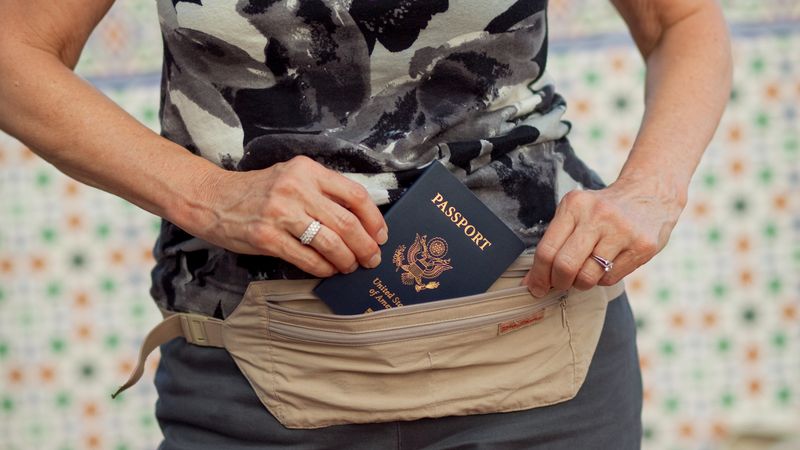
Putting all your eggs in one basket creates unnecessary risk when traveling. Imagine losing your passport, cards, cash, and phone in a single theft or misplacement incident! Veteran travelers distribute valuables strategically.
Keep some emergency cash in a separate pocket from your wallet. Store digital copies of important documents in cloud storage. Consider travel-specific security items like money belts or hidden pouches for your most important possessions.
9. Overplanning Every Minute Of The Trip
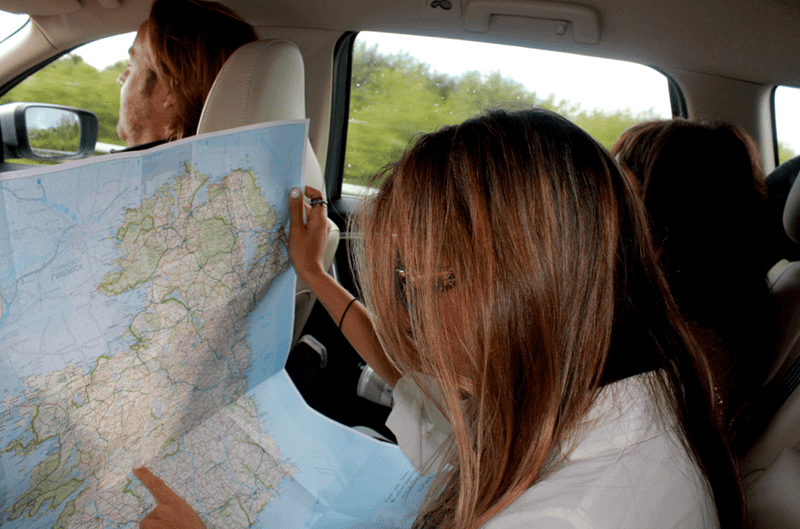
Minute-by-minute itineraries might seem efficient but often lead to exhaustion and disappointment. Some of the most magical travel moments happen spontaneously when you have the freedom to explore.
Schedule only one or two major activities per day, leaving breathing room between them. Build in complete “buffer days” with no fixed plans, especially after long travel segments. This flexibility allows for unexpected discoveries and helps prevent the dreaded vacation burnout.
10. Not Learning Basic Local Phrases

Making an effort with language opens doors that remain closed to tourists who expect everyone to speak English. Even mastering just a handful of words shows respect and creates goodwill.
Focus on practical phrases like greetings, please, thank you, excuse me, and basic numbers. Locals appreciate the effort, even if your pronunciation isn’t perfect. Download language apps before your trip and practice during your commute or downtime to build confidence.
11. Forgetting To Check The Weather And Dress Codes

Unexpected weather can derail carefully planned activities. Arriving in Paris during an unusual heatwave without appropriate clothing makes museum visits uncomfortable, while tropical downpours require more than a light jacket.
Beyond weather, dress codes matter tremendously in certain settings. Many religious sites require covered shoulders and knees regardless of temperature. Research seasonal patterns and pack adaptable layers that respect both climate and cultural expectations.
12. Taking Unregistered Taxis Or Rideshares
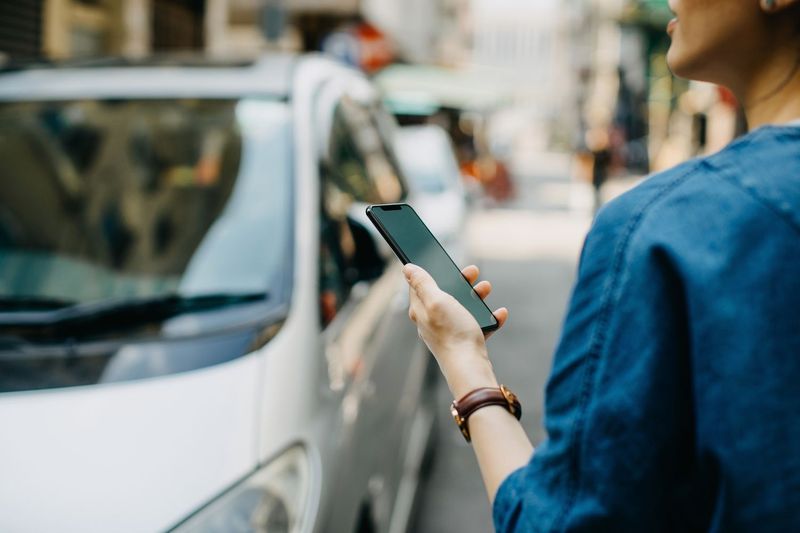
Transportation scams rank among the most common tourist pitfalls worldwide. Unofficial drivers may charge exorbitant rates, take unnecessarily long routes, or create safety concerns.
Stick with registered services identifiable by official markings, meters, and credentials. Many destinations now have reliable ride-hailing apps that provide upfront pricing and driver information. When in doubt, have your accommodation arrange transportation or walk to official taxi stands rather than hailing from the street.
13. Not Making Copies Of Important Documents
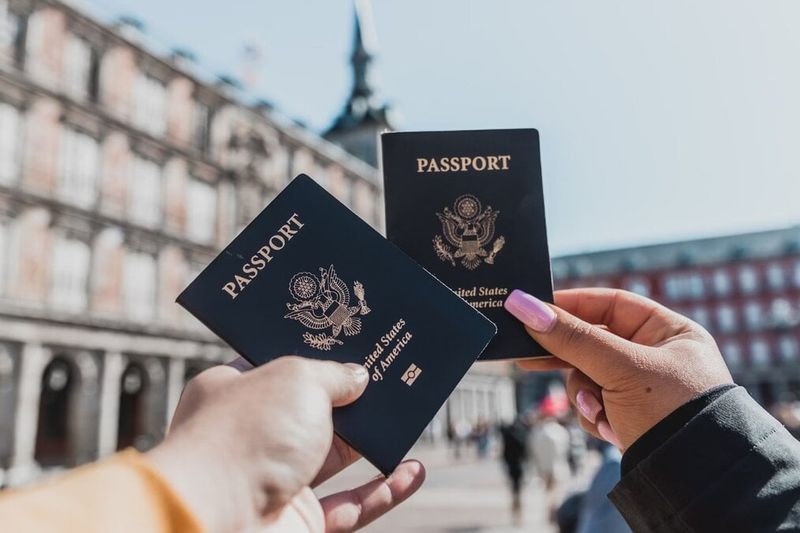
Lost passports create nightmarish situations abroad, turning dream vacations into embassy-visiting ordeals. Smart preparation means having backups ready before problems occur.
Store digital copies of your passport, visa, insurance details, and itinerary in cloud storage accessible from any device. Email copies to yourself and a trusted contact back home. Keep physical photocopies separate from originals—they’ll expedite replacement processes if the worst happens.
14. Eating Only At Tourist Spots

Restaurants with multilingual menus and staff shouting “best food in town!” often serve mediocre meals at inflated prices. The truly memorable dining experiences usually hide just a few blocks away from major attractions.
Follow this simple rule: walk at least three streets away from tourist zones before choosing a restaurant. Look for places filled with locals, not other travelers. Use translation apps to navigate menus or simply point to what others are enjoying—your taste buds will thank you!
15. Not Knowing Emergency Numbers Or Locations

Medical emergencies feel infinitely more frightening when you don’t know who to call or where to go. Emergency services aren’t universal—many countries don’t use 911, and response protocols vary dramatically.
Before departure, save local emergency numbers and map nearby hospitals with international patient services. Locate your country’s embassy or consulate and understand what assistance they can provide. Store this information offline where you can access it without internet connection.
16. Falling For Common Tourist Scams
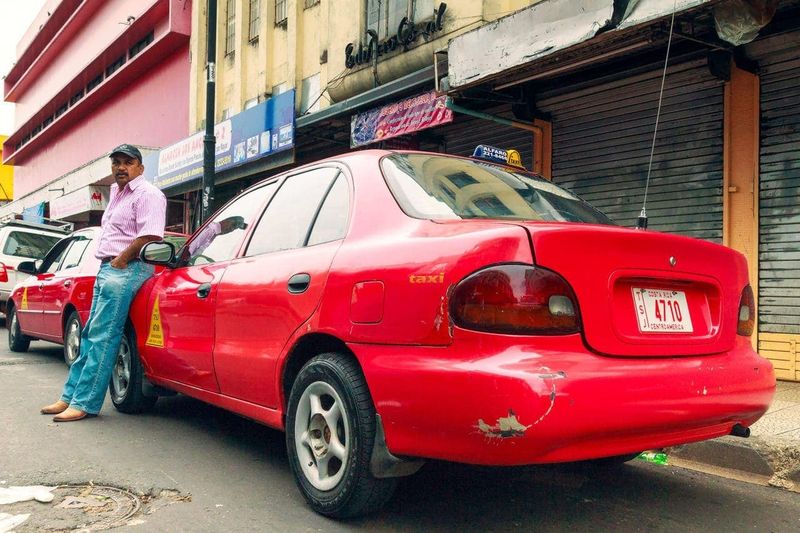
Scammers worldwide have perfected techniques targeting travelers. The “found ring” trick in Paris, fake police officers requesting to inspect your wallet, or friendly strangers insisting on taking you to their “family shop”—all prey on tourist goodwill.
Maintain healthy skepticism without becoming paranoid. Research common scams at your destination before arriving. Trust your instincts—if something feels off or too good to be true, politely but firmly remove yourself from the situation.
17. Underestimating Time Zones And Jet Lag

Jet lag can steal precious days from your vacation if not properly managed. Many travelers dismiss its impact, planning ambitious activities immediately after long-haul flights across multiple time zones.
Start adjusting your schedule several days before departure by gradually shifting mealtimes and sleep patterns toward your destination’s time zone. Stay hydrated during flights, avoid alcohol, and consider planning lighter activities for your first day rather than museum marathons requiring mental sharpness.
18. Booking Flights With Tight Layovers
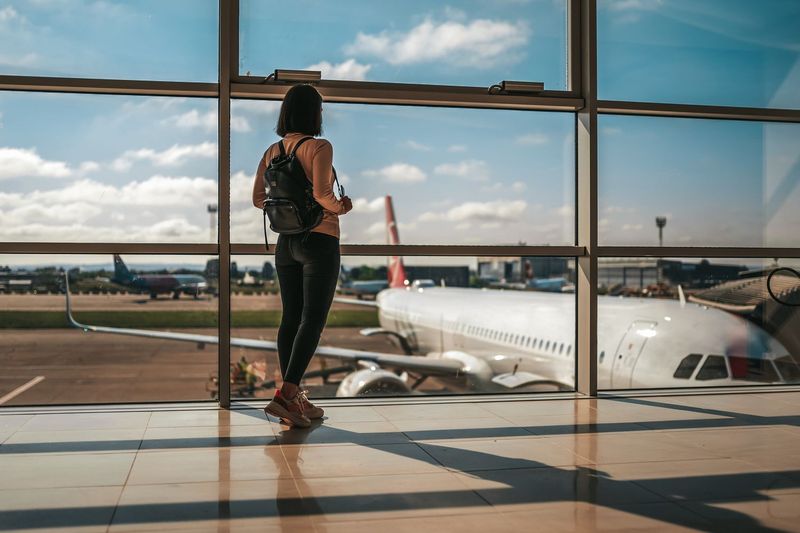
Those 45-minute connections might look tempting when booking, but they’re recipes for travel disasters. Flight delays, gate changes, and security lines can quickly consume that narrow window. International connections require even more time for immigration procedures and possibly re-checking luggage.
What seems like saving time often results in sprinting through terminals or missing flights altogether. Aim for at least 90 minutes between domestic connections and 2-3 hours for international transfers, especially at larger airports.
19. Failing To Double-Check Passport Expiration
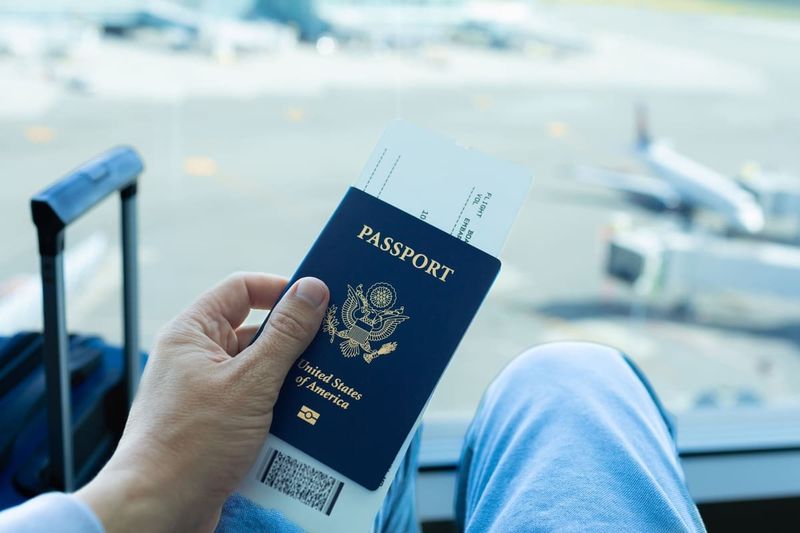
Valid doesn’t always mean acceptable! Many travelers don’t realize numerous countries require passports to remain valid for 3-6 months beyond your planned departure date.
This requirement catches thousands of travelers by surprise each year, resulting in denied boarding at airports despite having “valid” passports. Check expiration dates well before booking trips and verify the specific validity requirements for each country on your itinerary through official government websites.
20. Not Leaving Room For Flexibility In The Itinerary

Unexpected discoveries make travel magical—that hidden beach recommended by a local or the festival you stumble upon by chance. Rigid itineraries leave no room for these serendipitous moments.
Build buffer time into your schedule for spontaneous detours. Consider booking accommodations with free cancellation policies when possible. Remember that transportation delays, weather changes, and occasional illness are travel realities that require adaptability rather than frustration.
21. Always Pack A Change Of Clothes In Your Carry-On
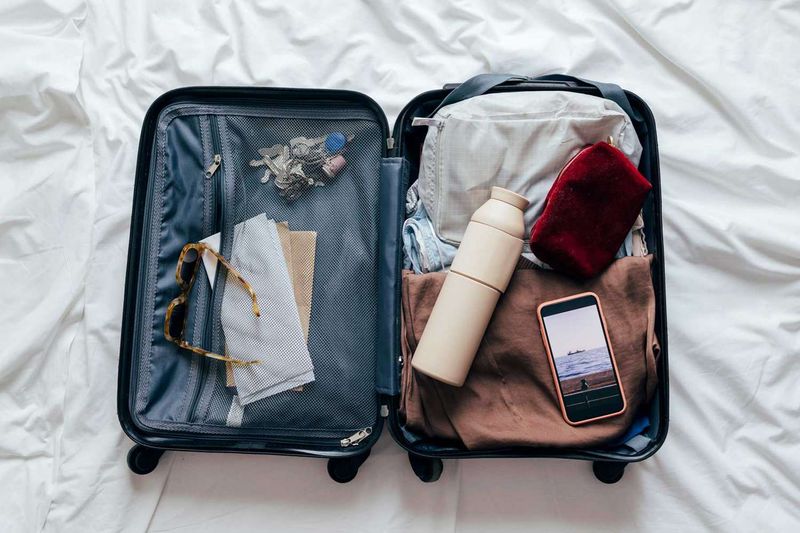
Savvy travelers never check everything. Airlines mishandle approximately 25 million bags annually, leaving countless travelers without essentials upon arrival. Your carry-on should contain at least one complete outfit change, basic toiletries, medications, and any can’t-live-without items.
This simple habit provides tremendous peace of mind. The strategy proves equally valuable during unexpected overnight layovers or when your checked bag arrives covered in mysterious liquid from someone else’s leaking shampoo bottle.
22. Bring A Reusable Water Bottle And Snacks

Airport and tourist area prices can be shocking—$5 for water that costs pennies elsewhere! Seasoned travelers always carry reusable bottles and refill at drinking fountains or restaurants.
Portable snacks prevent hangry moments when restaurants are closed or lines are impossibly long. They’re lifesavers during delayed flights or long bus journeys. This habit saves money while reducing plastic waste, making it both budget-friendly and environmentally responsible.
23. Save Maps For Offline Use Before You Go
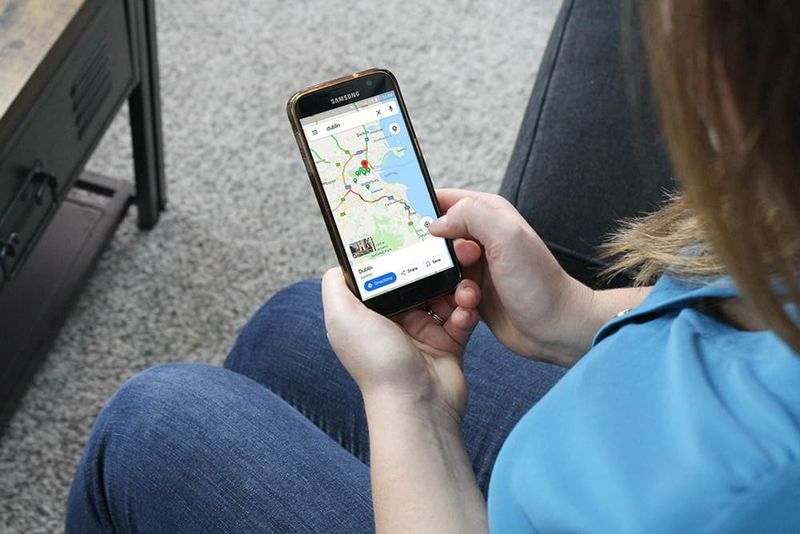
Mobile data doesn’t work everywhere, and international roaming charges can shock even the most prepared travelers. Suddenly losing navigation capabilities in unfamiliar surroundings creates unnecessary stress.
Before departure, download offline maps for your entire destination. Most mapping apps offer this feature with surprising detail, including business information and transit options.
24. Download Key Travel Apps In Advance

Hotel Wi-Fi rarely delivers the speed needed for large app downloads. Trying to install a critical translation app during an important conversation leads to awkward silences and missed opportunities.
Before departure, load your phone with essential travel tools: translation apps, currency converters, transit maps, and booking platforms specific to your destination. Test each app while still home to ensure functionality and familiarize yourself with features before you actually need them in potentially stressful situations.
25. Trust Locals Over Online Reviews For Food Recommendations

Review sites often steer travelers toward places catering specifically to tourists rather than authentic local gems. The best culinary experiences typically hide in establishments where locals outnumber visitors.
Ask non-tourism workers for recommendations—hotel housekeeping staff, shop employees, or people you meet in parks often share exceptional suggestions you won’t find online. Simple questions like “Where would you eat with your family?” yield more authentic recommendations than “What’s good around here?”
